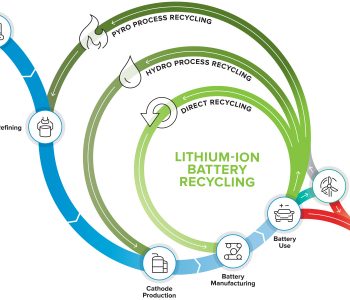 Invited talk
Invited talk
Invited talk: Process Alternatives for Li-recovery from spent batteries
Authors: Prof. Dr. Bernd Friedrich; M.Sc Lillian Peters
Title: Process Alternatives for Li-recovery from spent batteries
Affiliation: RWTH Aachen University – IME Process Metallurgy and Metal Recycling
Abstract
Due to the rising demand of Lithium-Ion Batteries in many applications like electric mobility or portable consumer goods the scrap volumes arising in the future are likely to increase, too. Nonetheless, exact calculations are challenging because the highly dynamic market, also in view of battery chemistries, is subject to uncertainties. Scenario-based approaches by means of several parameters such as the cell weight, the battery lifetime, the collection rate or the export quota lead to helpful estimations, which are crucial for recyclers. In terms of the process technology there are many concepts and process paths available serving to recover relevant metals and materials and such contribute to the global target of a circular economy of raw materials. Depending on specific interests, the prerequisites in terms of knowledge or existing equipment technology, different paths can be chosen. Still, in many processes less noble but valuable components, such as the core element Li, are presently not recovered.
For each process path alternative a “recycling efficiency” (RE) can be consequently calculated. The European Union has defined a threshold for an efficient recycling process, namely a 50 wt.% RE referring to cell level. In contrast to that, only a few companies in Europe are capable of realizing this aim by mobilizing sufficient products from this waste instead of dumping important metals such as Lithium in a slag. This presentation aims to give an insight into the prevalent concepts for holistic recycling with a special focus on Li, and highlights their shortcomings and benefits. Hereby potentials and needs for political or technological modifications from the status-quo are pointed out.
